CONTENTS
Guide
Christie Cognevich received her PhD in literature from Louisiana State University and is earning an MFA in writing for children and young adults from Vermont College of Fine Arts. She teaches high school English and creative writing in New Orleans, Louisiana, where she lives with her two cats named after dead poets. In addition to teaching and writing, she enjoys graphic design. She can be found online at christiecognevich.com.
DEPRESSION
EMPOWERING YOU
The Rowman & Littlefield Empowering You series is aimed to help you, as a young adult, deal with important topics that you, your friends, or family might be facing. Whether you are looking for answers about certain illnesses, social issues, or personal problems, the books in this series provide you with the most up-to-date information. Throughout each book you will also find stories from other teenagers to provide personal perspectives on the subject.
For Aliciathank you for always believing in me and my writing
Published by Rowman & Littlefield
An imprint of The Rowman & Littlefield Publishing Group, Inc.
4501 Forbes Boulevard, Suite 200, Lanham, Maryland 20706
www.rowman.com
6 Tinworth Street, London, SE11 5AL, United Kingdom
Copyright 2020 by The Rowman & Littlefield Publishing Group, Inc.
All rights reserved. No part of this book may be reproduced in any form or by any electronic or mechanical means, including information storage and retrieval systems, without written permission from the publisher, except by a reviewer who may quote passages in a review.
British Library Cataloguing in Publication Information Available
Library of Congress Cataloging-in-Publication Data
Names: Cognevich, Christie, 1984 author.
Title: Depression : insights and tips for teenagers / Christie Cognevich.
Description: Lanham : Rowman & Littlefield, [2020] | Series: Empowering you | Includes bibliographical references and index. | Audience: Ages 1318 | Summary: This book offers relatable situations and strategies to guide teens struggling with mental healthincluding identifying signs of struggle, recognizing stress factors, and offering strategies to escape harmful mental habits which can leave individuals feeling vulnerable, helpless, or in despairProvided by publisher.
Identifiers: LCCN 2020011184 (print) | LCCN 2020011185 (ebook) | ISBN 9781538137604 (paperback) | ISBN 9781538137611 (epub)
Subjects: LCSH: Depression in adolescenceJuvenile literature.
Classification: LCC RJ506.D4 C63 2020 (print) | LCC RJ506.D4 (ebook) | DDC 616.85/2700835dc23
LC record available at https://lccn.loc.gov/2020011184
LC ebook record available at https://lccn.loc.gov/2020011185
 The paper used in this publication meets the minimum requirements of American National Standard for Information SciencesPermanence of Paper for Printed Library Materials, ANSI/NISO Z39.48-1992.
The paper used in this publication meets the minimum requirements of American National Standard for Information SciencesPermanence of Paper for Printed Library Materials, ANSI/NISO Z39.48-1992.
D epression: Insights and Tips for Teenagers is guided by anecdotesbrief stories told by people who have experienced the real-life issues theyre discussing. All anecdotes in this book are from teenagers or someone describing their own experiences with depression as a teenager.
That includes me.
I experienced depression all through my teenage years and beyond, sometimes having long stretches of healthiness and sometimes having long times of darkness varying in intensity depending on the day. I have gone through the ups and downs of not realizing what was going on with me, or realizing I was having a depressive episode but feeling helpless to do anything about it.
Ive resisted therapy when I knew deep down that I would benefit from it, and Ive gone through the complicated process of looking for therapists when I wasnt feeling well or motivated. Ive had some very not-good fits in the therapy department, but Ive also found great people I trust and with whom I feel safe talking. Ive had (and sometimes still have) some unhealthy coping habits. I know what its like when a bad choice feels like a warm hug at the moment and like shame afterward. Lets be honest: for me, that bad choice looks like too many tacos and a lot of regrets. Ive also picked up a lot of useful coping skills along the way from a lot of wise people both in and out of the mental health profession.
There are many incredibly useful resources, workbooks, and guides out there written by experts in the field. Pick them up and take a look at them. If theres anything Ive found in my years of working and struggling through my problems, its that the more resources you see, the better. Wisdom and insight can come from the least expected places. I have learned so much from therapists, counselors, social workers, psychiatrists, and psychologists. Ive also been inspired, and Ive grown by talking with students in training in the mental health field. Ive bonded and benefited from being with others who have depression, anxiety, and other mental health issues. Not everyone has been an expert in terms of having degrees and certifications, but they all had so many valuable things to share.
In the spirit of seeking insight everywhere, what distinguishes this book from others is that while doctors, counselors, and therapists write most of the other guides on depression out there, my experience with depression is personal, and my work with teenagers isnt with patients. Im a teacher. I spend more than eight hours a day working side by side with amazing adolescents grappling with and overcoming all kinds of mental and physical struggles. One of the things I love most is how much I learn from and am inspired by my students.
As a teacher, one of the greatest gifts I can share with my students is not just literature (its good for the soul!), but my experiences. Not because my experiences look just like theirs. Not because my experiences are the perfect models to follow, but because were all humans trying to weave the rich tapestry of life that sometimes gets a little knotted and tangled.
I was born with moderate hearing loss. It runs in the family; my mother and uncles are deaf. Sometimes I was motivated to sit in the front row of class and pay extra attention to follow what was happening, and sometimes I just zoned out and doodled because I couldnt hear, and it was too exhausting to keep following. Sometimes my teachers forgot about my hearing, and I got in trouble for not paying attention when I asked something that had already been answered. Sometimes that made me feel unbearably stupid, so I just stopped raising my hand and asking questions. I hated my hearing aids. They made me feel self-conscious, so I went years without wearing them regularly (not good), and then I was so sensitive to sound when I did wear them that I got overstimulated and had to take them out all the time.
I had depression off and on for years. Left unacknowledged, it didnt improve. My habits for (not) dealing with it didnt improve either.
Now I have a PhD in English literature and a career I love, but when I first started college at eighteen, I dropped out after my first semester. I started again after transferring schools, changed my major, and dropped out again. There was also an awful hair decision between those two events, but we dont need to talk about that.
I felt like a failure.
Everyone else was out there living their best life, and I wasnt. All the things that kept me depressed at the time have added up to make me who I am now, writing this book. It didnt help to be told that whatever I was going through was going to be okay, or that whatever was happening was happening for a reason, or that it was all going to turn out for the best. Im glad I get to share some of those experiences with you.


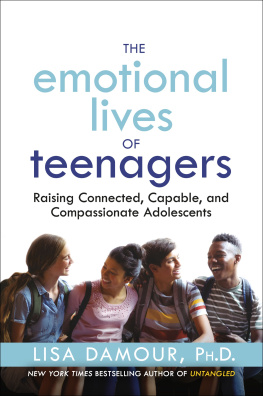
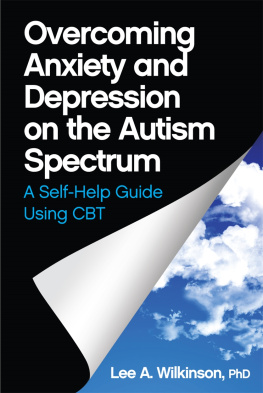
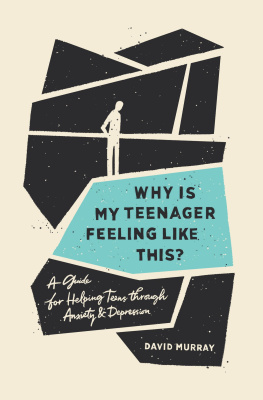
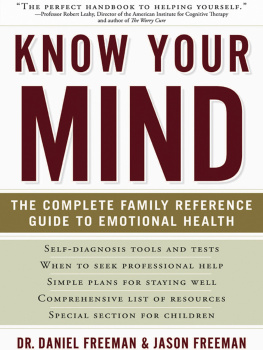
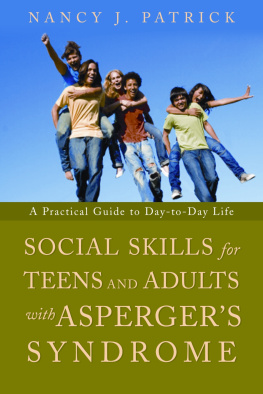

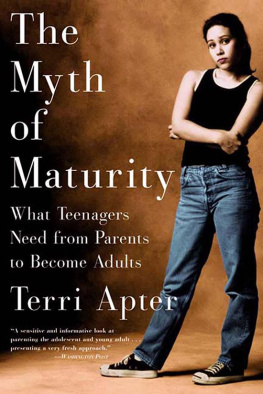
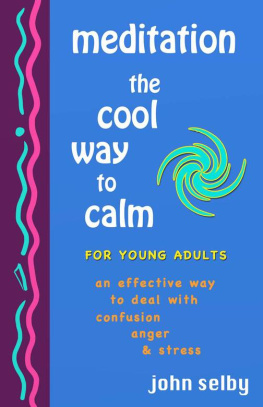
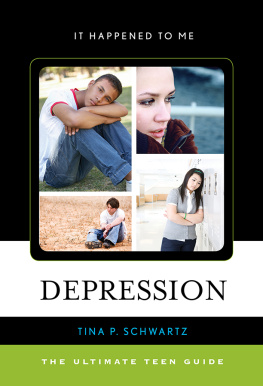

 The paper used in this publication meets the minimum requirements of American National Standard for Information SciencesPermanence of Paper for Printed Library Materials, ANSI/NISO Z39.48-1992.
The paper used in this publication meets the minimum requirements of American National Standard for Information SciencesPermanence of Paper for Printed Library Materials, ANSI/NISO Z39.48-1992.